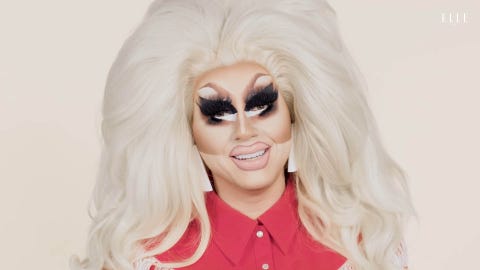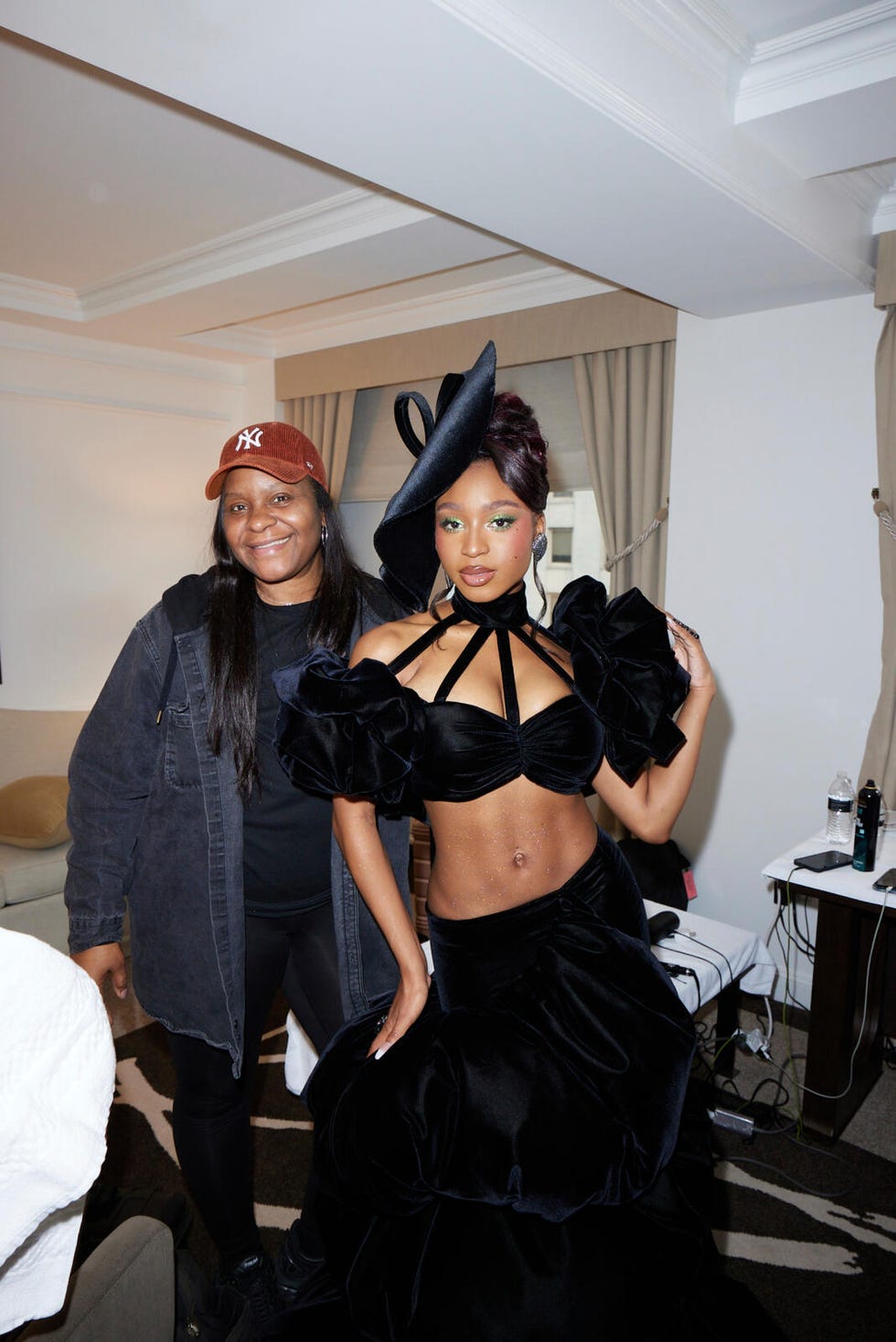Normani Isn’t Scared Anymore
Normani’s mother, Andrea Hamilton, has been diagnosed with breast cancer twice—and both times she found the lumps herself. The first time, Normani was just five years old, but she remembers seeing her mother check herself. In 2020, after 19 years cancer-free, Normani watched her mother perform the same self-exam, only to find another lump. “My mom’s diagnosis taught me that early detection and not taking anything for granted are so important,” the singer, now 26, says.
That Normani’s mom detected her cancer before doctors did is perhaps not all that surprising: When it comes to breast cancer, Black women often have to look out for themselves. While the CDC says that breast cancer will affect one in eight American women of all ages and races in their lifetime, and research from the American Cancer Society shows that Black and white women are diagnosed at similar rates, Black women are 40 percent more likely to die from the disease. They are also more likely to be diagnosed both at younger ages and at later stages. As repeated studies have shown, this is due, in large part, to racial bias in medicine, research, media, and society at large, which often views breast cancer as a “white woman’s disease”—a misconception that has resulted in white women receiving earlier diagnoses, more frequent examinations, and better treatment plans in comparison to women of color.
Making screening programs more accessible to underserved populations and increasing the number of people of color in clinical trials may help address this disparity over time. But in the meantime, Normani, who serves as an American Cancer Society ambassador—and whose mom is again cancer-free—hopes sharing her family’s experience will help raise awareness about the importance of knowing your body and speaking up for the care you need. Here, in her own words, Normani tells her story.
More From ELLE

I was in Los Angeles when I found out my mom had been diagnosed with breast cancer again. My family was back in Houston. Three weeks earlier, when I was visiting my mom at home, she’d fallen into my arms expressing how scared she was. She had a gut feeling about the results. I felt incredibly helpless because I wasn’t able to cure her. I could not change the circumstances. I also had to cope alone, thousands of miles away from my family. My mother and I couldn’t hold each other the way we both needed to. That day was my worst nightmare. I always said that unfortunately (but fortunately), the first time we experienced this, I was young, and not fully able to grasp the severity of the situation. This time around, I was. I really struggled across the board.
At the same time, I was working on my debut album, and completing it seemed very unrealistic. Aside from my mom, I wasn’t concerned about anything, including music. It was such a challenge to stay in my groove creatively while also allowing myself to feel everything that I needed to with my mom. She promised that she would still be here once my album dropped, which gave me purpose in creating this body of work. Every session and record that I did carried weight because my art was her escape during treatment. I felt conflicted because on one hand, I needed to be home with my family, but on the other, she needed me to stay on track. But I believed my mom every single time she said that she would have victory over this illness. My faith and God’s grace on my family helped me keep my feet on solid ground. I really could have lost my mind, but He granted me a sound mind and hopeful spirit throughout our journey.
When a close relative has been diagnosed with breast cancer, you have to honor both experiences: the one who is enduring and the one who is doing their best to support. My mom is incredibly independent and self-sufficient, so seeing her break down and not be able to function was really painful. Implementing normalcy and taking her out of reality was important. She didn’t want to be coddled or feel like a burden. We did our best to make sure she felt like not much had changed. You acknowledge the circumstances, but you don’t constantly remind someone or dwell on the current reality. You also have to take care of yourself in order to be that support system for someone in such a fragile state—not only physically but spiritually, emotionally, and mentally.
I watched my mother find her own lumps both times she had breast cancer. She taught me the importance of looking out for changes in your breasts and educated me on what mammograms were at an early age. I also encourage anyone who has a family member with cancer to see that your family talks to a doctor about genetic testing. We have taken these measures as a family. Knowledge is power, so whatever you don’t know, don’t be afraid to ask.
Since my mom has been in remission, we maximize every single moment and prioritize actually living instead of just existing. Over the holidays, we finally took that family trip that we’ve been talking about. I’ve had some of the most memorable moments of my life following my mother’s diagnoses. I know for a fact that I have already experienced the scariest time in my life with the thought of having to exist here without my mom. The things that scared me before no longer do.
This article appears in the October 2022 issue of ELLE.
Emily Burns is the assistant beauty editor at ELLE Magazine. When she’s not writing, she’s probably drinking an Aperol spritz and cuddling with her cat Wednesday….or scheming how to date Pete Davidson.

